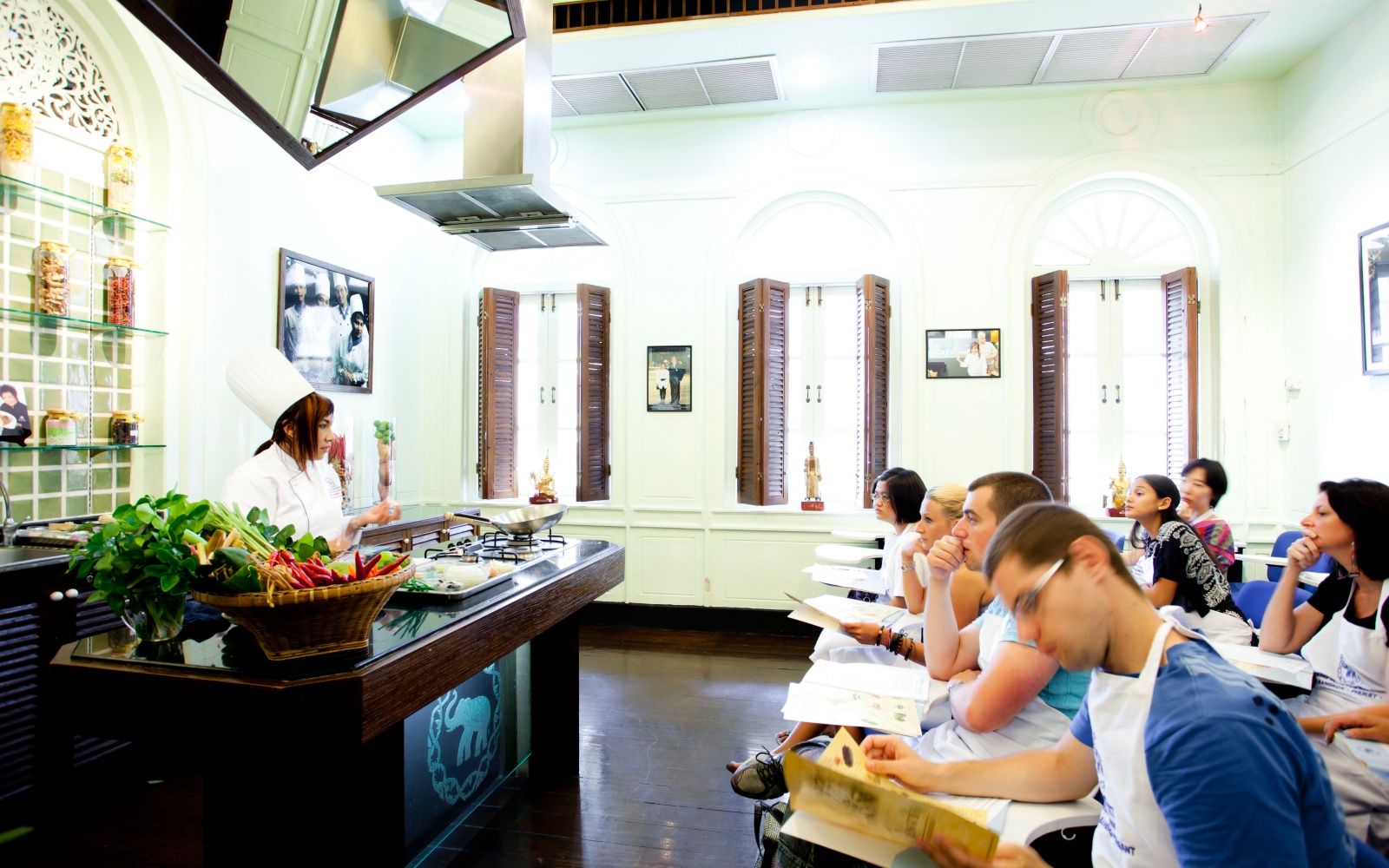
What and where you eat in Bangkok is just as important as visiting the temples and walking the markets. Thai cooks have a unique practice of balancing salty, hot, sour, sweet and sometimes bitter flavors—often in a single dish. This skills spans the country, from street stalls to white tablecloth restaurants. And as tourists have become increasingly interested in the nuances of this diverse cuisine, cooking schools are becoming a must-do item on travelers’ itineraries. Our favorite cooking schools in Bangkok can transform any home cook into an informed Thai chef.
Set in a traditional open-air kitchen in the center of bustling Bangkok, the Silom Thai Cooking School teachers vacationers how to recreate favorite dishes like Pad Thai, green curry, and mango sticky rice at home with authentic Thai practices. Instructors guide students at the nearby market to purchase (with a bit of bargaining, of course) ingredients needed for that day’s class—meat, fish, vegetables and herbs—with an eye for quality, while also teaching them relevant Thai vocabulary. They’re also quick to offer substitutes for ingredients that might be hard to find back home. Each session includes the preparation of an appetizer, main courses and dessert. The relaxed atmosphere of mashing up chilies with a mortar and pestle while sitting on the ground and using whole spices instead of pre-ground ones gives students a real look into the day-to-day life of Thai people. Some of the fancy bells and whistles are missing here, but the class is a steal for the price ($30 per person).
Related: Best Cooking Schools Around the World
Take a charming teak boat from the Mandarin Oriental pier across the Chao Phraya River to an antique Thai-style house, where The Oriental Thai Cooking School resides. It was home to Bangkok's first-ever cooking class in 1986. The menu changes daily, so guests can learn four separate dishes each session, or 24 over the course of the week. (If the weeklong session piques your interest, look for special room rates at the hotel that include the full week’s course). Classes are taught by the charismatic chef Narain Kiattiyotcharoen and limited to 15 people per session. Students tackle the hands-on cooking work in groups of three, and finish each session with a beautifully presented lunch of all dishes. The Mandarin Oriental is a five-star hotel, and the standard of service and facilities at the school are on par. Saturday and Sunday classes include a trip to a local fresh market to pick out ingredients; during the Friday evening class, students can visit the market with the chef before heading back to the hotel to cook (classes start at $79 per person, and non-hotel guests are welcome).
The restaurant-turned-cooking-school Blue Elephant hosts morning and afternoon sessions, including a five-day professional course set in a century-old French colonial house. Students have a personal cooking station and wok, and helpful aids are nearby to assist when needed. Classes are the perfect mix for advanced cooks and kitchen newbies. Students enrolled in the morning session will ride the BTS (Bangkok’s above-ground public transportation) to the Bangrak Market to shop for ingredients such as bird’s eye chili and coriander roots. Back in the kitchen, the small class will learn to make four authentic, centuries-old dishes like massaman curry with beef, Thai fish cakes and prawn soufflé. At the end of the lesson, enjoy the meal in the decked-out dining room. Students eat the dishes they make, which allows for easy adjustments to spice levels and dietary restrictions along the way (classes start at $74 per person).
The idea of going to a cooking class in a mall may be a turn-off, but Bangkokians love their malls, and some amazing restaurants and bars are found in these air-conditioned mega shopping centers—such as the Issaya Cooking Studio, founded by the superstars behind the famous Bangkok restaurant Issaya Siamese Club. Issaya’s chef Ian Kittichai, who appears on Iron Chef Thailand and owns restaurants in Bangkok, New York City and Barcelona, teaches courses, along with guest chefs from some of Bangkok’s famous eateries. Students work at high-tech stations to recreate recipes from Issaya Siamese Club, such as dipping sauces, curries and Thai desserts, with an emphasis on artful plating. Students can take specialty classes learning innovative cocktails with Thai ingredients like lemongrass from mixologist Justin Dunne, or make Thai sweets (classes start at $59 per person).
More good reads from T+L:
• The Most Exciting New Hotels on the Summer 2015 Radar
• In Photo: Japan’s Ultra-Competitive Cycling Culture
• Best Places to Travel in 2015